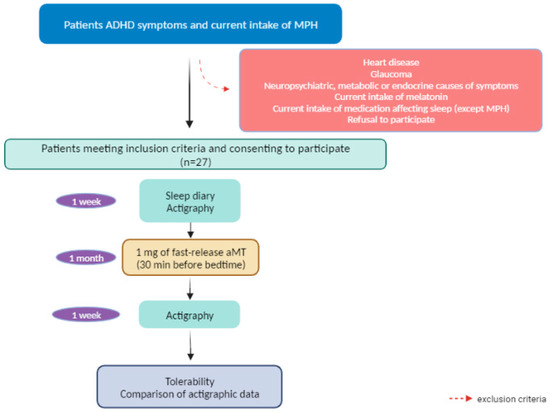Are you or a loved one taking Concerta for ADHD but aren’t sure if the dosage is right? It’s crucial to recognize the signs that your Concerta dose might be too low to effectively manage your symptoms. Understanding how to tell if your Concerta dose is too low can help you advocate for the appropriate adjustment with your healthcare provider. In this blog, we will explore common indicators that your Concerta dosage might need tweaking, such as decreased focus, restlessness, or lack of symptom improvement. By being aware of these signs, you can take proactive steps to ensure you are receiving the optimal treatment for your ADHD. Let’s dive in!
Introduction to Concerta Dosing
When it comes to managing ADHD symptoms, getting the right Concerta dose is crucial. Concerta is a popular medication that helps individuals focus and control impulsive behaviors. Understanding the dosing guidelines is essential for optimal treatment outcomes.
Proper Dosage Guidelines
Concerta dosing is individualized and based on factors like age, weight, and the severity of ADHD symptoms. Typically, the initial dose for children is 18 mg per day, while for adults, it may start at 18-36 mg daily. The dose can be gradually adjusted by a healthcare provider to achieve the best therapeutic effect.
It is important to follow the prescribed dosage instructions carefully to avoid potential side effects or ineffectiveness.
Signs of Low Dose
If you notice persistent symptoms like inattention, hyperactivity, or impulsivity despite taking Concerta, it could be a sign that your dose is too low. Consult your doctor if you suspect your current dose is not providing adequate symptom relief.

Common Signs of Low Concerta Dose
Recognizing the signs of a low Concerta dose is crucial in managing ADHD effectively. If you are experiencing suboptimal results from your medication, here are some symptoms to watch out for:
1. Decreased Focus and Attention
One of the key indicators that your Concerta dosage may be too low is a noticeable decline in your ability to concentrate and stay engaged in tasks.
2. Restlessness and Impulsivity
Individuals on an inadequate Concerta dose may exhibit increased levels of restlessness and impulsivity, making it challenging to control impulses and behavior.

Physical Symptoms to Look Out For
When trying to determine if your Concerta dose might be too low, it’s essential to pay attention to the physical symptoms your body may exhibit. These symptoms can provide valuable insights into whether your current dose is effectively managing your condition or if an adjustment is needed.
Changes in Behavior or Focus
If you find yourself experiencing difficulty in maintaining focus, completing tasks, or staying organized, it could indicate that your Concerta dose is inadequate. These challenges may point to the need for a dose adjustment to optimize your treatment.
Increased Hyperactivity
Another physical symptom to watch for is an increase in hyperactivity or impulsivity. If you notice a surge in restlessness or an inability to sit still, it may suggest that your current dose of Concerta is not providing adequate symptom control.
Behavioral Indicators of Low Dose
When assessing if your Concerta dose is too low, paying attention to behavioral indicators is crucial. One common sign of a low dose is inattentiveness. Individuals may struggle to focus, complete tasks, or stay organized. Additionally, impulsivity can increase, leading to hasty decision-making. Restlessness is another behavioral indicator to watch for, as individuals may have difficulty sitting still or staying on task.
Changes in Mood and Emotional State
Low Concerta dosage can also manifest changes in mood. Irritability and frustration may become more prominent, affecting relationships and daily interactions. Anxiety levels can also rise, impacting overall well-being. It is important to monitor these emotional shifts closely.
Impact on Cognitive Functioning
Another important behavioral indicator of a low Concerta dose is its impact on cognitive functioning. Difficulty in problem-solving and memory recall may arise. Tasks that once seemed manageable may become challenging, affecting performance in both academic and professional settings.
Consulting with Your Healthcare Provider
When it comes to determining if your Concerta dose is too low, it’s essential to consult with your healthcare provider. Your doctor can provide personalized advice based on your specific symptoms and medical history, ensuring you receive the most effective treatment.
Understanding Your Symptoms
During your consultation, be prepared to describe your symptoms in detail. Mention any changes in focus, attention span, or overall well-being that you have noticed since starting your current dose of Concerta.
Discussing Dosage Adjustments
Your healthcare provider may suggest adjusting your Concerta dose based on the information you provide. This can involve increasing or decreasing the dosage to better manage your symptoms and improve your quality of life.
Adjusting Your Concerta Dosage Safely
When determining if your Concerta dose is too low, it’s essential to approach any adjustments with caution and under the guidance of a healthcare professional.
Consult Your Healthcare Provider
It is crucial to consult with your healthcare provider before making any changes to your Concerta dosage. Your doctor will assess your current symptoms, health status, and overall medication response to determine if an adjustment is needed.
Gradual Dose Adjustment
Do not abruptly change your Concerta dosage without medical supervision. Gradual adjustments are recommended to monitor the effects of the new dose and reduce the risk of potential side effects.
- Follow your healthcare provider’s instructions meticulously.
- Keep track of any changes in symptoms or side effects.
- Be patient as it can take time to find the right dosage that works best for you.
Frequently Asked Questions
- How do I know if my Concerta dose is too low?
- Symptoms that might indicate your Concerta dose is too low include lack of focus, trouble concentrating, impulsivity, and restlessness.
- What should I do if I suspect my Concerta dose is too low?
- If you suspect that your Concerta dose is too low, it’s essential to consult your doctor or healthcare provider. They can evaluate your symptoms and adjust your dosage if necessary.
- Can a low Concerta dose affect my daily functioning?
- Yes, a low Concerta dose can impact your daily functioning by making it difficult to stay focused, complete tasks, and manage your impulses effectively.
- Are there any signs that indicate my Concerta dose is too high?
- Signs that your Concerta dose might be too high include feeling anxious, jittery, or experiencing side effects like insomnia or loss of appetite.
- How long should I wait before considering a Concerta dose adjustment?
- If you believe your Concerta dose might be too low, you should discuss this with your doctor during your next appointment. Do not adjust your dosage without medical guidance.
In Conclusion: How to Determine if Your Concerta Dose is too Low
When it comes to managing ADHD symptoms with Concerta, monitoring your dose is crucial for optimal effectiveness. Recognizing the signs that your Concerta dose might be too low is essential for ensuring you receive the right level of treatment. From decreased focus and impulsivity to increased restlessness and irritability, your body provides key indicators that the current dosage may not be sufficient.
By being mindful of these warning signs and consulting with your healthcare provider, you can make informed decisions about potential dose adjustments. Remember, personalized care is the key to successful ADHD management, and finding the right Concerta dose for your unique needs is a collaborative process between you and your doctor.
Stay attentive to your body’s signals, stay informed, and take proactive steps to optimize your Concerta treatment for a better quality of life.
